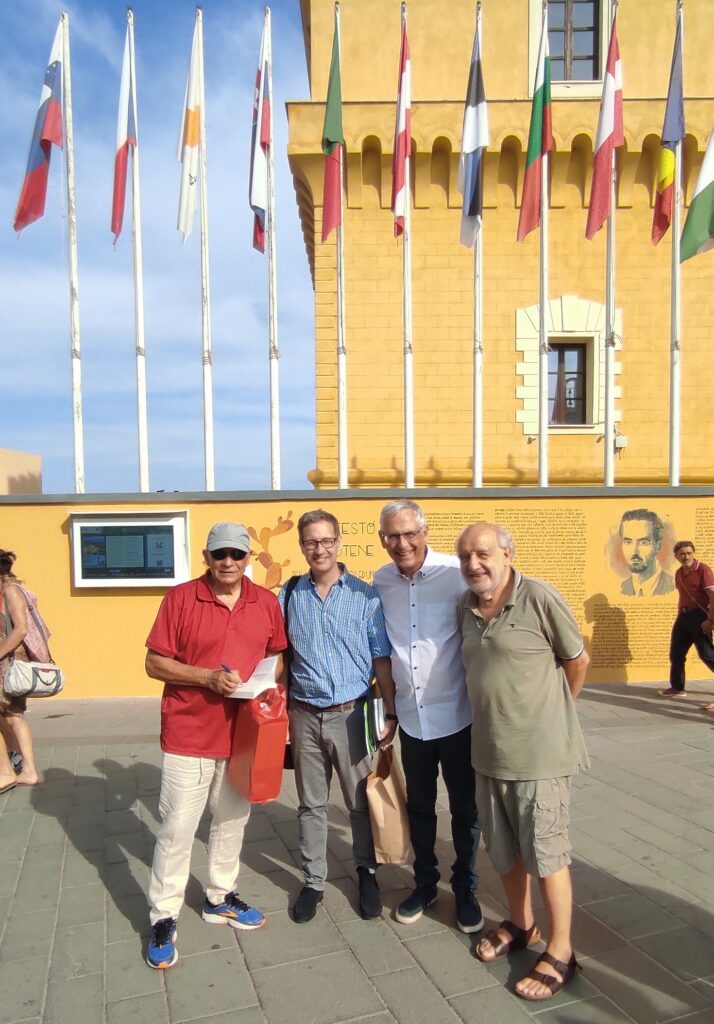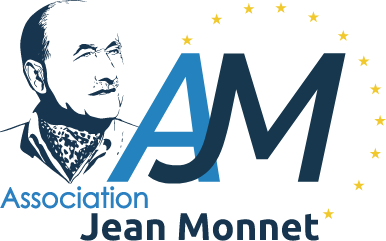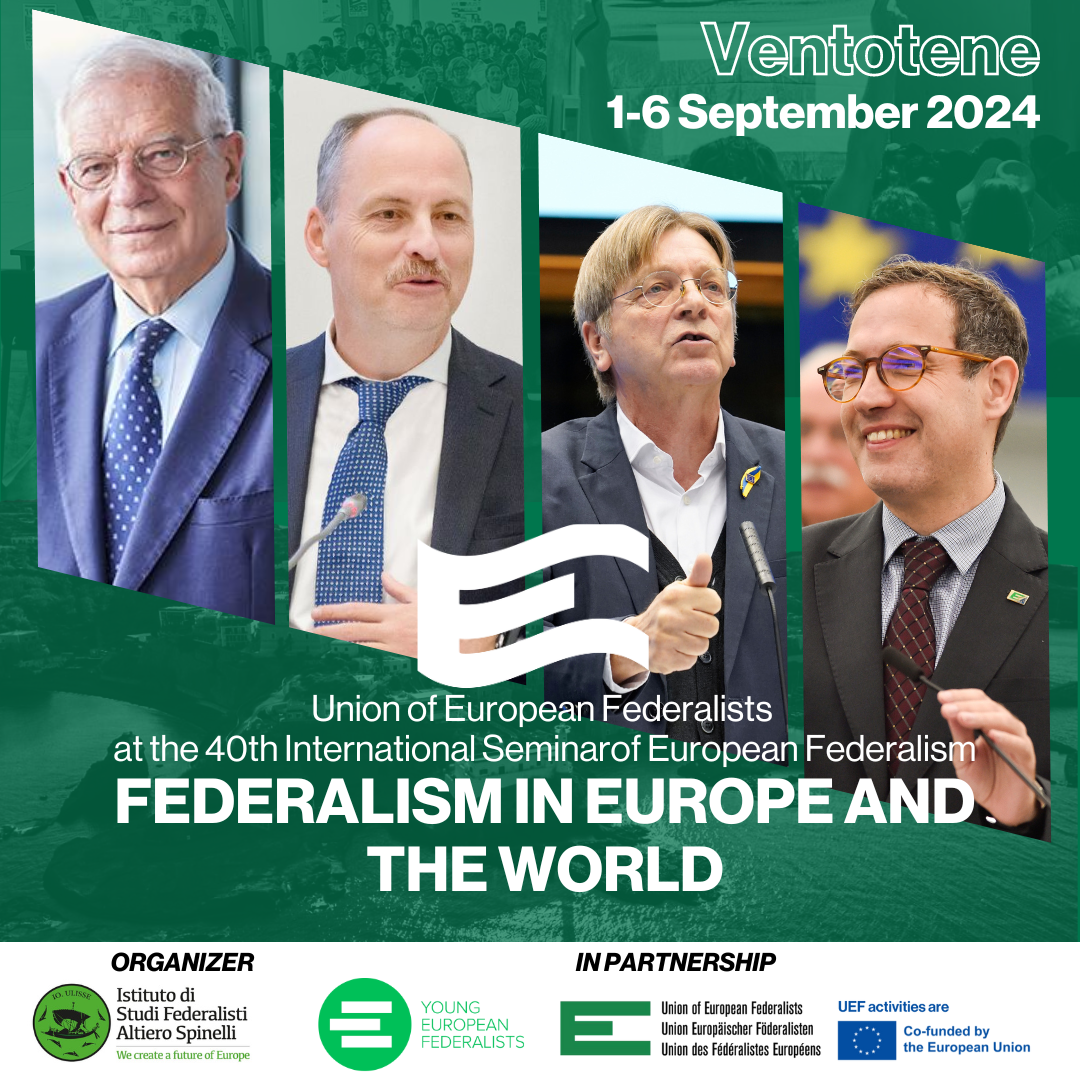Philippe Laurette took part in a round table discussion at the European training seminar for federalists on "Federalism in Europe and the World", organised by the Altiero Spinelli Institute for Federalist Studies and the municipality of Ventotene (Latina).
Many thanks for the invitation and the work of the organisers. I'm delighted to be speaking in the company of such great Europeans. It's with great emotion that I return to Ventotene.

I was lucky enough to take part in several JEF seminars here. For the young people here today, it's an exceptional opportunity:
- exchange ideas with young people from different countries,
- discover different cultures and practices,
- create networks,
- intellectual enrichment,
- enjoy this beautiful place steeped in history
I often think of Altiero Spinelli. His enthusiasm, his constant fight for Europe and his kindness towards young people.
with Joseph Borrell, Domenec Ruiz President of the European Union of Federalists and Virgilio Dastoli President of the Italian European Movement
As President of JEF France and then General Delegate of the Victor Hugo Club for the United States of Europe, I was exceptionally fortunate to organise meetings with him and JEF at the Senate in Paris and to be present on 14 February 1984 at the European Parliament for the draft Treaty on European Union and to organise meetings and exchanges with Simone Veil and other great Europeans. I can't forget our friend Virgilio Dastoli, his tireless collaborator.
To prepare for the future, you need to know your history.
As President of the Jean Monnet Association, I feel it is important and useful to take a brief but enlightening look at the relationship between Monnet and Spinelli. The frequent simplification is to oppose them in method and ideas. The reality is more complex and, depending on the period, was there not a need for both?
Spinelli and Monnet knew each other, respected each other, had a European faith and were at the service of the European project BUT did not always have the same approach.
Spinelli, leader of the European federalism (institutional current), in favour of a European constituent, was 44 years old when he met Monnet, who was 63 on 4 July 1951. His strategy was simple: establish a relationship with Monnet and Spaak, whom he considered to be the 2 other active European forces.
Monnet had an important meeting with Spinelli in July 52. He appreciated Spinelli's writing skills and asked him to write the opening speech of the ECSC High Authority and to head the Press and Information Office (in fact, to write Monnet's speeches).
Spinelli was interested in working with Monnet but did not want to become a European civil servant and wanted to work independently. His relations with Jean Monnet's collaborators were not good (Berthoin, Uri). Was this a form of jealousy that would leave its mark?
The differences:
Spinelli thought that Monnet should be the driving force behind the European party, whose aim was to encourage the creation of a European federation. He was ready to support him, but Monnet was an inspiration. His vocation was to convince and organise, not to create power for himself.
Monnet's objective in February 1955 was "the unity of the peoples of Europe united in the United States of Europe, a process of long-term change through the will of men but also the wisdom of institutions".
A misunderstanding sets in.
Jean Monnet was in favour of a policy of small steps. Spinelli, on the other hand, believes that we need to have legs (end of unanimity) and then we'll see how big the steps are.
Jean Monnet was not in favour of a new initiative in favour of a European constituent. While he was developing the idea of EURATOM, Spinelli was drawing up an action plan for a United States of Europe. He was disappointed by Euratom and the common market.
Spinelli would renew his friendship with Monnet in the 1960s, but he considered that his conversations with him had been an important stimulus to his intellectual and political maturation.
A few lessons for my conclusion:
- never give up after failure
- be pragmatic
- bring together and expand
- respecting sensitivities
- be methodical
I invite you to read the excellent book by Maria Grazia Melchionni published by the Jean Monnet Foundation in Lausanne.






